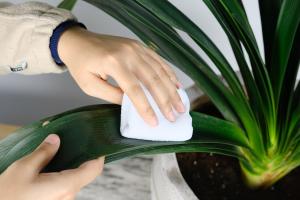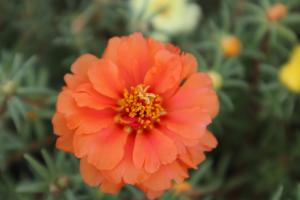Can I Water My Plants When the Sun is Out?
Watering plants is essential for their growth and maintenance. However, many people wonder whether it is okay to water plants when the sun is out. The answer to this question is not a simple one. It depends on various factors that affect the plant's health and growth. In this article, we will look at the answer to the query, 'Can I water my plants when the sun is out?'
Factors to Consider
Temperature, humidity levels, wind speed, and other weather conditions play a vital role in deciding whether to water plants when the sun is out. Here are a few things to consider when watering plants on a hot and sunny day:
The plant's watering needs: Some plants require more water than others. Check the soil moisture level and water accordingly.
The age of the plant: Young plants have a delicate root system, and the sun's rays can dry them out quickly. It's best to water them early in the morning or late in the evening when the sun is less harsh.
The type of soil: Sandy soil drains water quickly, while clay soil holds water for a longer time. Determine the soil type before watering.
The amount of rainfall: If there has been recent rainfall, you may not need to water your plants. Check the weather forecast before watering your plants.
Benefits of Watering Plants in Sunlight
Believe it or not, watering plants when the sun is out can be advantageous. Here are some benefits that you might not know:
The water droplets act as magnifying glasses and amplify the sun's rays, providing plants with extra energy to grow.
The sun's warmth helps dry off excess water on the leaves, reducing the risk of fungal growth and other diseases.
Watering plants during the day helps them absorb the water more effectively, as the stomata or tiny openings on the leaves are open during the daytime.
Drawbacks of Watering Plants in Sunlight
Although watering plants in the sun has its benefits, there are some risks involved as well. Here are some drawbacks to keep in mind:
If the sun is too harsh and the water droplets are on the leaves, they act as lenses and can burn the leaves, causing permanent damage.
Water evaporates more quickly in the sunlight, meaning you have to water more frequently than usual, which may waste water.
If the water droplets do not dry off quickly, they can form water spots on the leaves, making them susceptible to fungal diseases.
Conclusion
There is no one-size-fits-all answer to the question, 'Can I water my plants when the sun is out?' It ultimately depends on various factors such as temperature, humidity, soil type, and the plant's watering needs. However, watering plants during the daytime has its advantages and disadvantages. Make sure to consider these factors and use the right watering techniques to ensure your plants thrive and stay healthy.

 how many times do yo...
how many times do yo... how many planted tre...
how many planted tre... how many pine trees ...
how many pine trees ... how many pecan trees...
how many pecan trees... how many plants comp...
how many plants comp... how many plants can ...
how many plants can ... how many plants and ...
how many plants and ... how many pepper plan...
how many pepper plan...






























